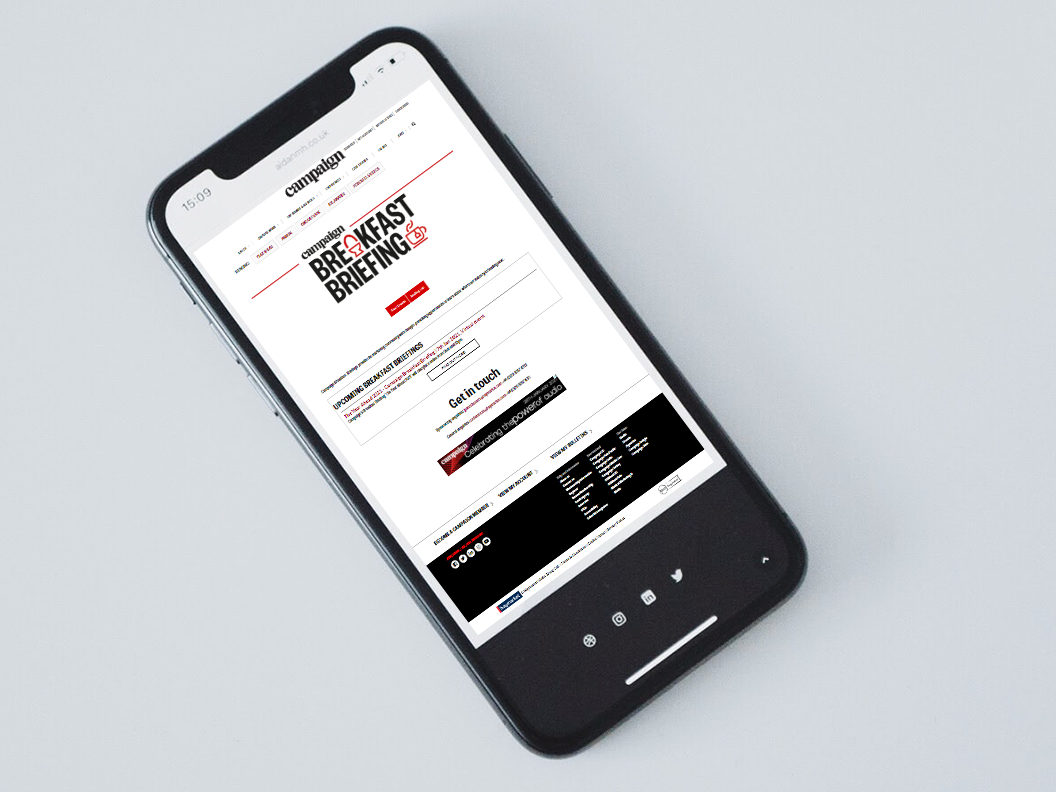
Campaign’s annual breakfast briefing provides the marketing community early insight into where the industry is heading next. January’s event covered views on adjusting to the ‘new norm’, industry-wide shifts in behaviour and the potential COVID-19 rebound. James Glendennan summarises key themes for the year ahead.
Ten years of changes in ten weeks
At the briefing Spark Foundry’s Marcos Angelides stated that by the end of 2020, “We had seen ten years of change in ten weeks.” Brands and agencies faced unforeseen challenges ranging from the management of campaigns and routes to market, to the more human aspect of ‘delivering the BAU’ while teams were suffering WFH fatigue. However, from this experience there are lessons that can be taken into a post-pandemic world (whenever that may arrive) which stand to serve our industry well:
Collaboration & Flexibility
Empathy has at times been in limited supply across the media market; a testament to the insatiable drive to enhance margins and business performance. The pandemic has forced stakeholders from across the industry to demonstrate increased flexibility and partnership.
A simple example of this is the lowering of booking deadlines and turnarounds across offline (most notably UK TV) media owners.
While this may sound like an insignificant change, this was a shift that for years had been stubbornly resisted by the very same organisations.
In a world where online spend is expected to account for over 50% of online investment this new way of working may act as a partial bulwark against the challenge of global digital titans and improve brand outcomes and planning flexibility.
Similarly, agencies have truly stepped up to act as collaborative partners managing cancellations, deferments and shifting campaign priorities all while being impacted at an organisational and individual level by the very same forces.
Ways of Working, Collaboration & Innovation
The pandemic has revolutionised the service sector. In the space of two weeks organisations had to shift from centralised office-based structures to dispersed and flexible digital networks.
The value of face to face interaction and connectivity can never be forgotten but the future is unlikely to look anything like pre-pandemic norms (five days a week of office commuting) and this may play a part in ‘levelling up’ the economy as individuals enjoy greater freedom in where they base themselves, allowing for a more diverse geographic workforce.
Within organisations programmes of work that were planned for several years were in many cases accelerated significantly as brands sought to manage the new environment in which they found themselves.
The most cited example is the rapid shift to ecommerce that has seen manufacturers increase their DTC activities. This extended beyond typical sectors into areas such as automotive (click and collect) while traditional retailers also accelerated their own efforts in this space to keep pace with regulations and consumer behaviours.
The speed at which brands and their agency partners accommodated this change and the acceleration of workstreams is a testament to the ability of organisations to rapidly evolve and support one another.
While we all hope for an end to the pandemic the new approaches will in many cases continue and advertisers with these growing routes to market (and altered marketing requirements) will focus on these in the years ahead.
2020 was painful but the sector has found some benefit from the over-arching trauma and challenges to historic norms and approaches. After a decade of hearing the oft-repeated mantras of ‘transformation’, ‘collaboration’ and ‘partnership’ we truly saw them in action, long may this continue.
Key Take-homes:
- The shape of the UK (and other mature) economies have seen a fundamental shift (services upweighted at the expense of hospitality / tourism etc.), and fiscal support / quantitative easing may be reined in throughout 2021.
- While there will be a recovery in media spend in 2021, this will not recover the losses of 2020 in full and this is in part a result of the effect of the above. Enders Analysis expect online investment to increase by c. 30% on an ongoing basis compared to their pre-pandemic forecasts, online will account for over 50% of ad spend in 2021 (in the UK). TV is more resilient relative to other offline channels.
- The strategic profile of their media investment is a question that advertisers consistently grapple with, the increased flexibility of offline media owners as a result of COVID was seen as a big win by brands and if continued may help to internally justify maintaining investment relative to the more fluid digital landscape.
- COVID has had a rapid evolutionary impact on the marketing landscape and as all stakeholders manage the new ways of working (and financial restraints) advertiser investment will need to be fully optimised, measured and managed either as part of an ongoing relationship or through a partner selection process where organisations are fully partnered for growth.
If you are looking for help navigating the challenges of 2021, do get in touch.